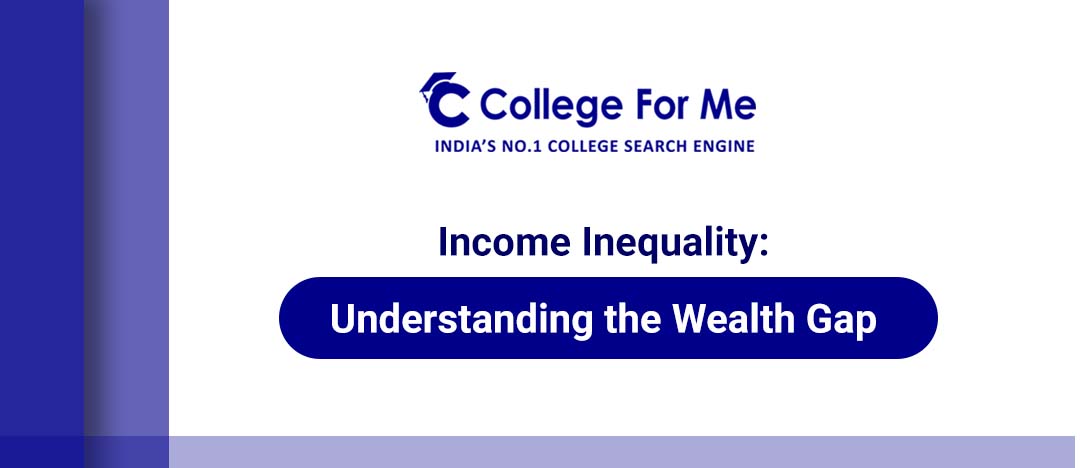Career Scopes Of A B.Tech. Student
There is a high demand for B.Tech. degree holders in the private sector, yet, there is also the opti...

India, a country known for its diversity and contrasts, is also characterized by significant income inequality. While the nation has made remarkable progress in various areas, the disparity in wealth distribution remains a pressing issue.
This article delves into the dynamics of income inequality in India, its root causes, and its far-reaching consequences for society.
The Stark Reality of Income Inequality
Income inequality in India is evident in various aspects of life, from access to education and healthcare to living standards and employment opportunities. A few key statistics help paint a vivid picture of the wealth gap:
Root Causes of Income Inequality
Understanding the factors contributing to income inequality in India is crucial to addressing the issue effectively:
-Historical Factors: India's colonial past and the caste system have had a lasting impact on income distribution. Historical disparities in land ownership, access to resources, and education continue to influence inequality.
-Unequal Access to Education: Education is a powerful tool for upward mobility. However, disparities in quality education and access to educational resources persist, perpetuating income gaps.
-Limited Employment Opportunities: The informal labor sector, which lacks job security and benefits, employs a significant portion of the population. These jobs often pay low wages, contributing to income inequality.
-Gender Disparities: Gender-based income inequality is a significant concern in India. Women continue to face wage gaps, limited opportunities for leadership roles, and unequal access to resources.
-Urban-Rural Divide: Income inequality is often more pronounced in urban areas due to higher living costs and greater income disparities. Rural areas face their own set of challenges, including land ownership disparities.
Consequences of Income Inequality
The wealth gap in India has far-reaching consequences:
-Reduced Social Mobility: Income inequality can limit opportunities for individuals to move up the socioeconomic ladder, leading to reduced social mobility.
-Healthcare Disparities: People with lower incomes often struggle to access quality healthcare, resulting in poorer health outcomes.
-Education Barriers: Income inequality can perpetuate disparities in access to quality education, limiting individuals' potential.
-Social Cohesion: High levels of income inequality can strain social cohesion and lead to social unrest.
-Economic Growth: Excessive income inequality can hinder overall economic growth, as a large portion of the population may not have the means to invest in education, health, or entrepreneurship.
Addressing Income Inequality
Addressing income inequality in India requires a multifaceted approach:
-Progressive Taxation: Implementing progressive tax policies that place a heavier burden on the wealthy can help redistribute wealth.
-Investing in Education: Expanding access to quality education and vocational training can empower individuals to secure higher-paying jobs.
-Job Creation: Policies that promote inclusive economic growth and job creation, especially in rural areas, can help reduce income disparities.
-Gender Equality: Encouraging gender equality in the workplace and addressing gender-based wage gaps is essential.
-Land Reforms: Land ownership reforms can help address historical disparities and provide a basis for economic empowerment.
Income inequality in India is a complex and deeply rooted issue that has wide-ranging implications for the nation's social fabric and economic growth. Addressing this challenge requires sustained efforts from policymakers, businesses, and civil society organizations. By implementing policies and initiatives that promote economic inclusivity, access to education, and gender equality, India can work towards a more equitable and prosperous future for all its citizens.

There is a high demand for B.Tech. degree holders in the private sector, yet, there is also the opti...

If you are looking for a bright and prospective career, then getting a B.Tech. in CSE must be under ...
Comments (0)